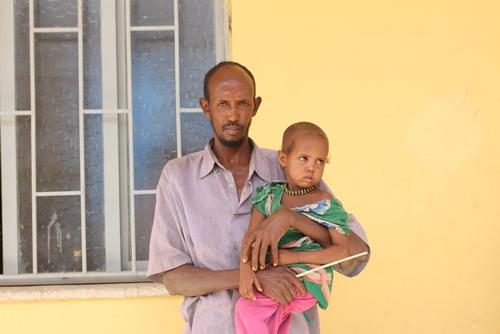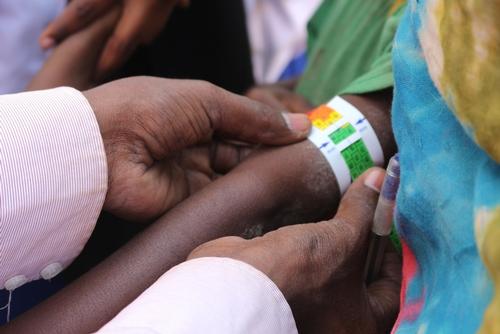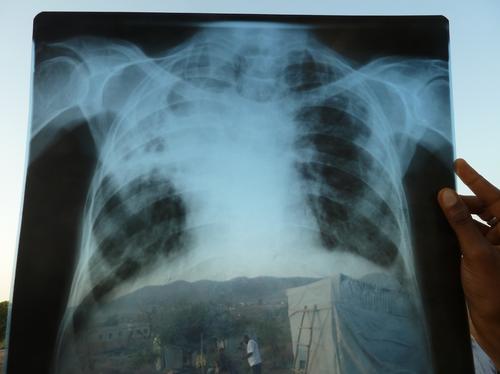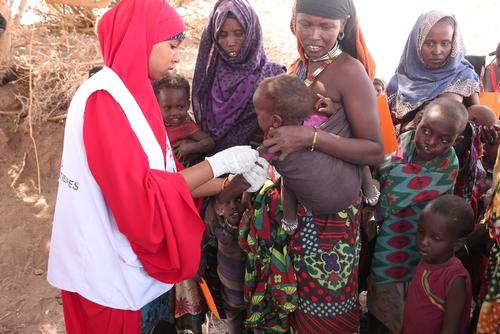The signs of drought are evident in Ethiopia’s Siti region and it is the pastoralist communities who rely on their livestock that are bearing the brunt of the suffering. Médecins Sans Frontières (MSF) has been active in the area since late 2015, providing care to mothers and running therapeutic feeding programmes for the region’s malnourished children.
The arid region of Siti has seen little rain in the last year and a half. At the moment hardly anything grows that can sustain the livestock that is so central to the lives of the semi-nomadic people of this area. Without enough rain, this timeless way of life will assuredly come to an end in this part of eastern Ethiopia.
In the last few months, many of these semi-nomadic communities have migrated to the small village of Asbuli looking for support. Under the Ethiopian Ministry of Health, MSF runs a nutritional stabilisation clinic which receives the most urgent cases of childhood malnutrition. Other aid agencies are involved in water and food distribution.
From this central base, MSF also sends out community health teams that move from settlement to settlement, screening children for malnutrition and vaccinating them against diseases like measles, hepatitis B and polio.
“On any given day we can see between 90 and 200 children,” explains Fardowsa Jigre, team leader of an MSF outreach team. “When we see a malnourished child it is a sure sign that the whole family is hungry. But we can only help the most vulnerable. In Siti, the situation is very bad.”
“In general, the settled communities have been doing a little better than the nomadic groups in this crisis. There are lower levels of malnutrition in these communities and this is mainly because they are able to receive water rations and food aid.”
The pastoralists are often in the most remote corners of the region, as they move further and further away looking for water for their remaining animals. This makes it difficult for the government or any of the aid agencies to find them and provide help.
Inevitably, however, a time comes when these herders and their families have to make a choice - either to remain with their dwindling livestock or to abandon it all and come to more populated areas where they can get support.
Farah Ateyo is a father of four young children who was forced to make this difficult decision and walked the 100 kilometres, with his family, to the MSF clinic in Asbuli.
By the time he had completed this three-day journey, his youngest daughter Hawa was in such bad condition that she had to be admitted to the MSF feeding centre. Doctors immediately diagnosed her with the advanced stages of malnutrition with severe respiratory problems. For several days, she needed a ventilator to breathe.
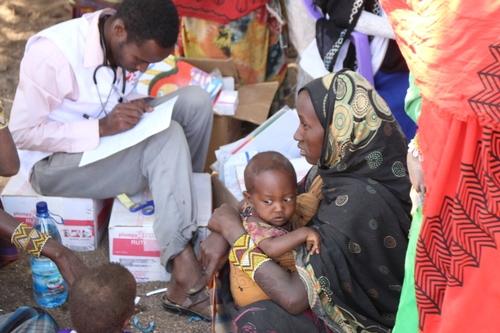
Since being admitted to the MSF treatment centre two weeks ago, Hawa has been making progress but still has some way to go. The combination of intensive medical care and high-energy nutritional supplements has made a difference and she is now smiling and playing with her father.
Farah is adamant though that he will never return to his old home in Qainder. “I thank Allah, and after him MSF, for everything that I have now, but I have no animals or a guarantee of rains. Why would I inflict this unhappiness again on my family? There is no longer anything for us there.”
His attitude is typical amongst most of the families who have arrived in Asbuli and settled there. While the women tend to the children, few of the men can find work. The pastoralist life is all they know and their future is far from clear.
However, if you look hard enough you can find some good news in this desolate place. MSF's targeted feeding and vaccination programmes have had some notable successes. In Hariso, another MSF project in Siti, childhood malnutrition has been drastically reduced in a few short months.
In Asbuli, there has been a big reduction in the number of measles cases. This highly contagious viral disease can be fatal for young children and can spread like wildfire when people live in close proximity, such as in a camp. MSF launched an intensive vaccination programme for all children in the area. By early March, the number of cases had dropped and the measles ward in the MSF facility was empty.
While MSF has been well received in the surrounding communities, it can be a struggle to make some mothers accept the prescribed treatment for malnutrition especially when there is so little to eat.
According to Fardowsa: “Often a mother will have so little for the family that she will share out the Plumpy’nut therapeutic bars prescribed for her sick child. People refuse to acknowledge that if the child does not get the necessary nutrition it will die.”
“At times though we can make a connection. I feel that, as a local woman who speaks the same language, they will focus on my words and take time to consider what I have to say.”
“For the whole team, the hardest thing is knowing that time is against us. If the drought continues, more people will arrive and I don’t know if we will be able to respond to their needs.”



